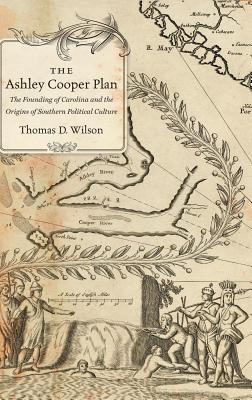
- We will send in 10–14 business days.
- Author: Thomas D Wilson
- Publisher: University of North Carolina Press
- ISBN-10: 1469628902
- ISBN-13: 9781469628905
- Format: 15.6 x 23.4 x 2.2 cm, hardcover
- Language: English
- SAVE -10% with code: EXTRA
Reviews
Description
In this highly original work, Thomas D. Wilson offers surprising new insights into the origins of the political storms we witness today. Wilson connects the Ashley Cooper Plan--a seventeenth-century model for a well-ordered society imagined by Anthony Ashley Cooper (1st Earl of Shaftesbury) and his protege John Locke--to current debates about views on climate change, sustainable development, urbanism, and professional expertise in general. In doing so, he examines the ways that the city design, political culture, ideology, and governing structures of the Province of Carolina have shaped political acts and public policy even in the present. Wilson identifies one of the fundamental paradoxes of American history: although Ashley Cooper and Locke based their model of rational planning on assumptions of equality, the lure of profits to be had from slaveholding soon undermined its utopian qualities. Wilson argues that in the transition to a slave society, the "Gothic" framework of the Carolina Fundamental Constitutions was stripped of its original imperative of class reciprocity, reverberating in American politics to this day.
Reflecting on contemporary culture, Wilson argues that the nation's urban-rural divide rooted in this earlier period has corrosively influenced American character, pitting one demographic segment against another. While illuminating the political philosophies of Ashley Cooper and Locke as they relate to cities, Wilson also provides those currently under attack by antiurbanists--from city planners to climate scientists--with a deeper understanding of the intellectual origins of a divided America and the long history that reinforces it.
EXTRA 10 % discount with code: EXTRA
The promotion ends in 19d.21:04:34
The discount code is valid when purchasing from 10 €. Discounts do not stack.
- Author: Thomas D Wilson
- Publisher: University of North Carolina Press
- ISBN-10: 1469628902
- ISBN-13: 9781469628905
- Format: 15.6 x 23.4 x 2.2 cm, hardcover
- Language: English English
In this highly original work, Thomas D. Wilson offers surprising new insights into the origins of the political storms we witness today. Wilson connects the Ashley Cooper Plan--a seventeenth-century model for a well-ordered society imagined by Anthony Ashley Cooper (1st Earl of Shaftesbury) and his protege John Locke--to current debates about views on climate change, sustainable development, urbanism, and professional expertise in general. In doing so, he examines the ways that the city design, political culture, ideology, and governing structures of the Province of Carolina have shaped political acts and public policy even in the present. Wilson identifies one of the fundamental paradoxes of American history: although Ashley Cooper and Locke based their model of rational planning on assumptions of equality, the lure of profits to be had from slaveholding soon undermined its utopian qualities. Wilson argues that in the transition to a slave society, the "Gothic" framework of the Carolina Fundamental Constitutions was stripped of its original imperative of class reciprocity, reverberating in American politics to this day.
Reflecting on contemporary culture, Wilson argues that the nation's urban-rural divide rooted in this earlier period has corrosively influenced American character, pitting one demographic segment against another. While illuminating the political philosophies of Ashley Cooper and Locke as they relate to cities, Wilson also provides those currently under attack by antiurbanists--from city planners to climate scientists--with a deeper understanding of the intellectual origins of a divided America and the long history that reinforces it.


Reviews